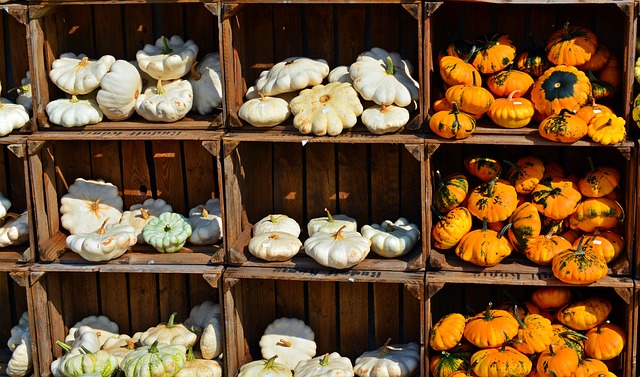During autumn, managing yard waste effectively is essential for maintaining healthy lawns and gardens, and for contributing to environmental sustainability. Homeowners should take advantage of local Yard Waste Removal and Recycling programs that offer regular pickups to handle the seasonal accumulation of leaves and other organic debris. These programs divert yard waste from landfills by composting or turning it into mulch, which enriches soil and aids plant growth. Utilizing mulching mowers or leaf vacuums can further reduce waste volume and speed up decomposition. For those who prefer a more hands-on approach, creating a compost pile or bin for organic materials is beneficial for both property tidiness and sustainable waste practices. Yard Waste Removal and Recycling not only streamlines disposal but also offers ecological advantages, such as improving soil quality, conserving water resources by reducing methane emissions from landfills, supporting biodiversity, and enhancing air quality through increased photosynthesis. Engaging with these programs is a practical and environmentally sound approach to managing yard waste responsibly and supports the overall health of communities and ecosystems. Homeowners are encouraged to follow local Yard Waste Removal and Recycling guidelines for specific protocols, including collection schedules and accepted materials, to ensure a cleaner, greener landscape all year round.
Fall has arrived, signaling a season of vibrant foliage and the inevitable accumulation of leaves. As homeowners prepare to manage this natural debris, efficient leaf collection strategies become paramount for maintaining a tidy landscape. This article delves into effective practices tailored for homeowners, emphasizing how these approaches can also offer environmental benefits through the practice of mulching yard waste. Furthermore, understanding local yard waste removal and recycling programs is crucial for sustainable management of autumn’s bounty. Discover how these initiatives contribute to eco-friendly landscaping and learn how to engage with your community’s yard waste disposal systems.
- Efficient Leaf Collection Strategies for Homeowners
- The Environmental Benefits of Mulching Yard Waste
- Understanding Your Local Yard Waste Removal and Recycling Programs
Efficient Leaf Collection Strategies for Homeowners

homeowners can effectively manage yard waste, particularly during the autumn season when leaves fall rapidly. Efficient leaf collection strategies are vital for maintaining a healthy lawn and garden, as well as for preventing yard waste from becoming a nuisance. One of the most sustainable methods for managing this natural litter is through yard waste removal and recycling programs. These programs often provide residents with yard waste collection services, which involve regularly scheduled pickups of leaves and other organic matter. By participating in such services, homeowners can ensure that these materials are composted or converted into mulch, rather than ending up in landfills.
Additionally, using a mulching mower or leaf vacuum can significantly reduce the volume of yard waste that needs to be removed. These tools shred leaves into fine particles as they are collected, which not only speeds up the decomposition process but also returns valuable nutrients to the soil. This organic matter improves soil structure and fertility, creating a beneficial cycle that supports plant growth. Homeowners can further enhance their yard waste management by creating a compost pile or bin for leaves and other organic materials. This DIY approach not only saves time and resources but also offers a hands-on way to contribute to sustainable waste management practices. With thoughtful planning and the utilization of yard waste removal and recycling services, homeowners can keep their properties tidy and support environmental health throughout the year.
The Environmental Benefits of Mulching Yard Waste

Yard waste, comprising leaves, grass clippings, and garden trimmings, represents a significant portion of municipal waste. By engaging in yard waste removal and recycling through mulching, homeowners and municipalities can significantly reduce the amount of organic material sent to landfills. Mulching yard waste not only simplifies disposal but also provides environmental benefits that contribute to sustainable practices.
Mulching yard waste on-site transforms organic debris into a valuable resource. This process breaks down the waste into finer particles, which can then be used as mulch to enrich soil quality and retain moisture, thereby reducing water usage. The decomposition of yard waste in landfills produces methane, a potent greenhouse gas. By diverting this waste from landfills, mulching helps mitigate methane emissions, directly contributing to the reduction of the carbon footprint. Additionally, the reuse of yard waste as mulch encourages soil health, fosters biodiversity by providing habitats for beneficial organisms, and supports the growth of healthy plants, which in turn contribute to cleaner air through increased photosynthesis. Yard waste recycling through mulching is a practical and sustainable solution that benefits both the environment and communities.
Understanding Your Local Yard Waste Removal and Recycling Programs

Residents can maintain healthy yards and protect the environment by utilizing local yard waste removal and recycling programs. These initiatives are designed to manage organic materials such as leaves, grass clippings, and garden debris effectively, ensuring they decompose properly and contribute to soil health rather than landfills. Participating in these programs not only promotes sustainable practices but also often includes guidelines on the appropriate collection schedule, acceptable materials, and specific recycling methods. Homeowners should familiarize themselves with the specific protocols set by their local waste management authorities, which may vary depending on regional policies and available resources. By adhering to these programs, one can significantly reduce waste, conserve natural resources, and support the ecological balance within the community. It’s beneficial to check local government websites or contact customer service for detailed information on yard waste removal and recycling services, including pickup dates, special drop-off events, and mulching options that transform yard waste into valuable compost for gardens. Proactive participation in these programs contributes to a cleaner environment and healthier landscapes.
Homeowners looking to maintain a healthy yard and contribute positively to environmental conservation can benefit from implementing efficient leaf collection strategies. By understanding and utilizing local yard waste removal and recycling programs, one not only simplifies their yard maintenance tasks but also supports sustainability efforts. Mulching yard waste, in particular, offers significant environmental benefits by returning nutrients to the soil and reducing the need for chemical fertilizers. Embracing these practices can foster a more eco-friendly community and promote biodiversity. This article has highlighted key strategies and local program resources to aid in the responsible management of yard waste, ensuring that homeowners are well-equipped to make informed decisions this season and beyond.






